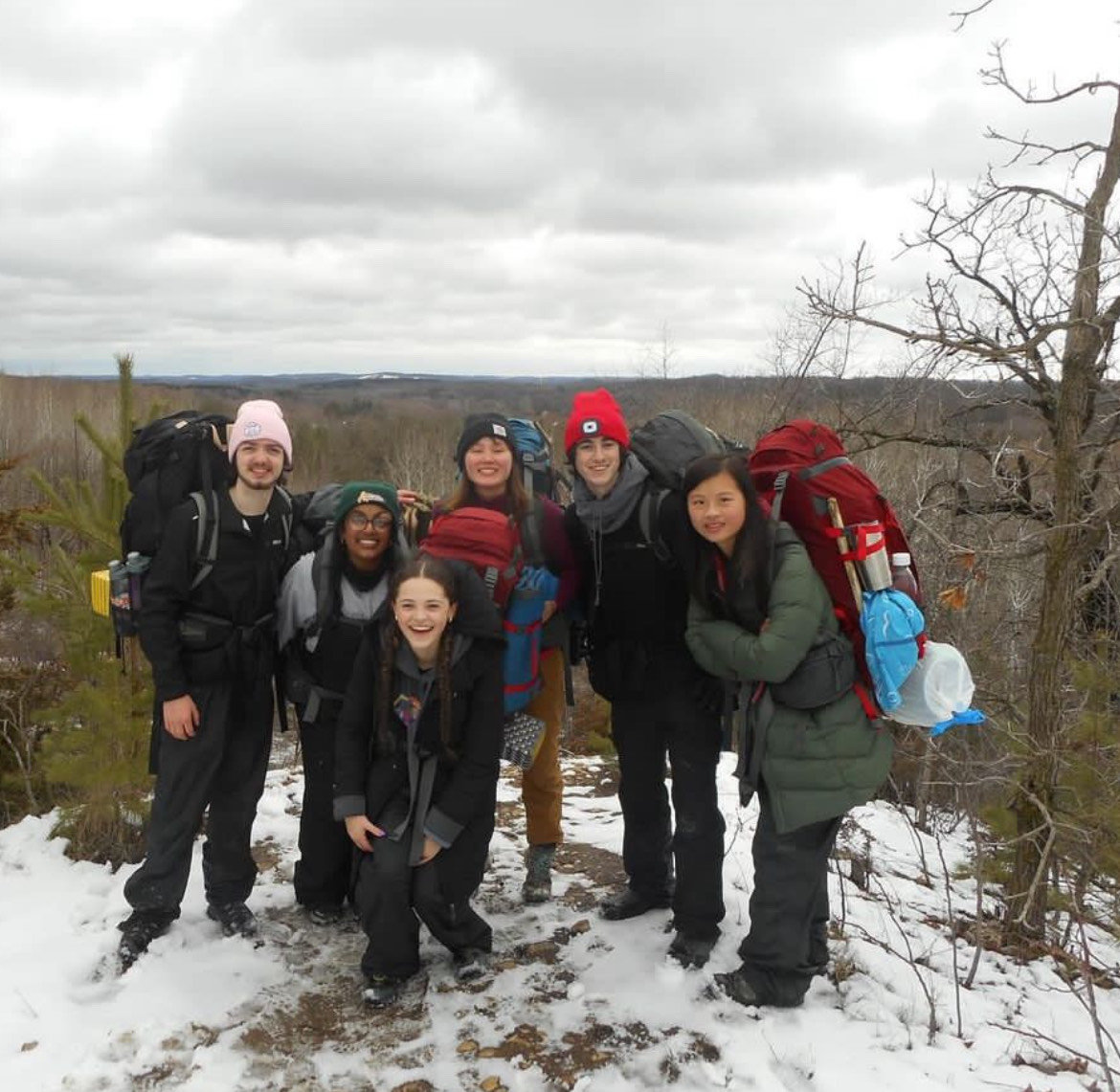Everyone on Earth relies on nature to survive, and Environmental Literature and Science (ELS), a class run by science teacher Eric Mathews and English teacher Eric Gietzen, uses outdoor exploration to strengthen students’ connections to nature and their knowledge of the world around them.
“ELS is unique in that it exposes students to two disciplinary lenses simultaneously, English and environmental science, and it uses the state of Wisconsin as its ‘textbook,’” Mathews said. “Those field-based experiences are written into the course curriculum the same way that a test or presentation may be written into another class’s curriculum.”
The literature portion of the class exposes students to texts from prominent environmental thinkers, causing them to look at their surroundings holistically.
“When [students] come back from [adventures], they are asked to synthesize their understanding of the experience through the lenses of the authors that we’ve already encountered in the classroom environment,” Mathews said.
The curriculum is designed around two to three outdoor overnight trips per semester, giving students a chance to practice first-hand the skills and information that they learn in class. There are presentations built into these trips, letting students share their knowledge on specific topics with their peers.
“In order for those lessons to coalesce and to be transformative for students, they have to experience those landscapes intimately and personally in the field and adventure is the most effective mechanism that we have,” Mathews said.
During the most recent ELS trip, students were originally headed to Door County, but due to an ice storm in the area, the location was changed to Kohler-Andrae State Park in Sheboygan. Despite the location change, the general schedule and planned activities stayed the same.
“We hiked on average about six miles per day, and then, [the students] would pitch their camp, cook their meals, we would process our experiences around the campfire in the evening and then wake up the next day and do it again,” Mathews said.
For some of the students, preparing the camp set up was a new experience which required instruction as well as improvisation.
“We cooked food, with an interesting stove set up,” said Olivia Strath, junior. “I have never had to use this type of stove before, so it was a very big learning curve…we had a fuel tank and we had to connect it up to this tiny stove, and then we put pots and all of that on [top].”
During the trip, there were many opportunities for students to participate in team-building activities, such as campfire games.
“Getting to create new relationships with people that I don’t normally really talk to was just amazing [as well as] creating even stronger bonds with people I already know,” said Violet Maloney, junior.
The class focuses on helping students reconnect with nature, and students revoke access to their phones for the duration of the trip. While the idea of being cut off from technology might be daunting for some people, it can also help relationships form.
“I feel that if we had had our phones, then everyone would have gone on their phones… and we wouldn’t have bonded as much as we did,” Strath said.
The essential goal of the trip was for students to apply their knowledge and learn more about the geographical location of the Niagara Escarpment located along the stretch of Lake Michigan.
“A student group of two presented to the class, in that environment, about the geological history of [the dolomite bedrock]…the way that it formed, its tectonic history, and, perhaps most importantly, the way that that particular type of bedrock weathers in the roads and contributes to modern water quality challenges in Lake Michigan,” Mathews said.
Students also discovered how the scientific names and concepts they learned in class were beneficial to the identification of organisms in their environment.
“I felt like we learned a lot in class that we used in the field to name and identify all trees [and] plants…learning about the different ecosystems and the biodiversity that was in them would probably take at least a few pages of paper [to list],” Maloney said.
Overall, ELS has helped students bond with peers that they may not typically talk to, and has given them opportunities to spend more time in and around nature.
“My appreciation [of nature] has always been very high, and so [this trip] was almost like a welcome home for me,” Maloney said. “It’s almost your instincts and stuff that lead you [through it].”

